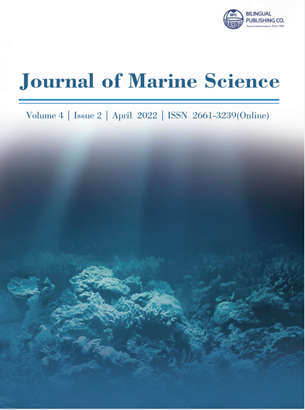Study on Legal Issues of Ocean Fishing in China
DOI:
https://doi.org/10.30564/jms.v4i2.4454Abstract
“The 21st century is the century of the ocean.” In recent years, China has paid more and more attention to the promotion and development of the marine industry, especially the ocean fishery has brought immeasurable economic benefits to China. The development of the marine field is becoming more and more important in the national political, economic and cultural development. All coastal countries have included marine development in their national development strategies and continuously improved their marine legislation under the provisions of the United Nations Convention on the law of the sea. China’s pelagic fishing began in 1985, but because China’s pelagic fishing started too late, after the entry into force of the United Nations Convention on the law of the sea at the end of 1994, nearly 36% of the richest high seas on earth became the exclusive economic zone of coastal countries, and the development space of China’s pelagic fishing has become very limited. After just more than 30 years of development. However, before that, China’s pelagic fishing was still subject to the dual norms of international conventions and domestic laws, and China had not yet formulated a special law on pelagic fishing, and there were still many deficiencies in the legal system norms of pelagic fishing. Therefore, the biggest problem facing China’s pelagic fishery is how to better develop the marine industry under the system of laws and regulations, drive the coordinated economic development, provide legal guidance and help for pelagic fishermen, and provide solid technical support for building a marine power with Chinese characteristics.
Keywords:
Pelagic fishery; Pelagic fishing; Laws and regulations; SupervisionReferences
[1] Ge, H., 2018. Analysis of fishery management policies and regulations and transoceanic fishery cooperation in typical countries along the Indian Ocean. Zhejiang Ocean University.
[2] Meng, X.D., Wu, W.F., 2005. The fisherman and his diary. China Fishery Economy. (04), 54-57.
[3] Liu, Sh.L., 2010. Discussion on the development of Pelagic Fisheries and fishing boat equipment in China. Fishery Modernization. 37(06), 66-69 + 51.
[4] Zhang, J., Qiu, Y.S., Chen, Z.Zh., et al., 2018. Progress in investigation and evaluation of Oceanic Fishery Resources off the South China Sea. Southern Fisheries Science. 14(06), 118-127.
[5] Yang, Ch.X., 2011. A preliminary study on small-scale fishery and its management in China. Ocean University of China.
[6] Liu, D.M., 2008. Comparative study on fishery legal systems between China and EU. Northeast Forestry University.
[7] Liu, Y.Y., 2020. Research on legal issues of ocean fishing in China. Dalian Ocean University.
[8] Huang, J.L., Huang, Sh.L., 2001. International Law of the sea and the development of China’s Pelagic Fisheries. Marine Fisheries. (02), 57-59.
[9] Zhang, H., Tang, F.H., Cheng, J.H., et al., 2015. Current situation and development thinking of China’s pelagic fishery, published in China’s fishery economy. (5).
[10] Song, L.M., Xu, L.X., Sha, F., et al., 2015. Practice and thinking of “order type” training of talents in short supply of Pelagic Fisheries. Journal of Zhejiang Ocean University: Humanities and society edition. 32(3), 32-35.
[11] Yue, D.D., Wang, L.M., Huang, H.L., et al., 2016. Study on the development countermeasures of Pelagic Fisheries in China. China Agricultural Science and technology guide. 18(02), 156-164.
[12] Japan Fisheries Agency, 2020. Japan Fisheries White Paper 2020 [EB/OL]. http://www.Jfa.Maff.go.jp/j/kikaku/ wpaper / index.html.
[13] Code of Conduct for Responsible Fisheries [EB/OL]. [20210921]. http://www.fao.org/3/v9878e/v9878e00.htm.
[14] Gammelgaard, J., Haakonsson, S., Just, S.N., 2021. Linking Malawi’s agricultural sector to global value chains:the case for community governance. Journal of International Business Policy.
[15] DOI: https://doi.org/10.1057/s42214-021-00101-0
[16] Berchie, A., Paulina, O., Ewusienf, K., et al., 2021. A fishery in distress:an analysis of the small pelagic fishery of Ghana. Marine Policy. 129, 1-7.
[17] Jiang, H.M., 2021. The role of panel data in organization of global value chain:evidence from a developing country. Applied Economics Letters. 28(7), 546-550.
[18] Bjrn, A., Kristin, B., Alessandra, P., et al., 2021. The nature of innovation in global value chains. Journal of World Business. 56(4), 1-10.
Downloads
Issue
Article Type
License
Copyright and Licensing
The authors shall retain the copyright of their work but allow the Publisher to publish, copy, distribute, and convey the work.
Journal of Marine Science publishes accepted manuscripts under Creative Commons Attribution-NonCommercial 4.0 International License (CC BY-NC 4.0). Authors who submit their papers for publication by Journal of Marine Science agree to have the CC BY-NC 4.0 license applied to their work, and that anyone is allowed to reuse the article or part of it free of charge for non-commercial use. As long as you follow the license terms and original source is properly cited, anyone may copy, redistribute the material in any medium or format, remix, transform, and build upon the material.
License Policy for Reuse of Third-Party Materials
If a manuscript submitted to the journal contains the materials which are held in copyright by a third-party, authors are responsible for obtaining permissions from the copyright holder to reuse or republish any previously published figures, illustrations, charts, tables, photographs, and text excerpts, etc. When submitting a manuscript, official written proof of permission must be provided and clearly stated in the cover letter.
The editorial office of the journal has the right to reject/retract articles that reuse third-party materials without permission.
Journal Policies on Data Sharing
We encourage authors to share articles published in our journal to other data platforms, but only if it is noted that it has been published in this journal.




 Yanli Sun
Yanli Sun

